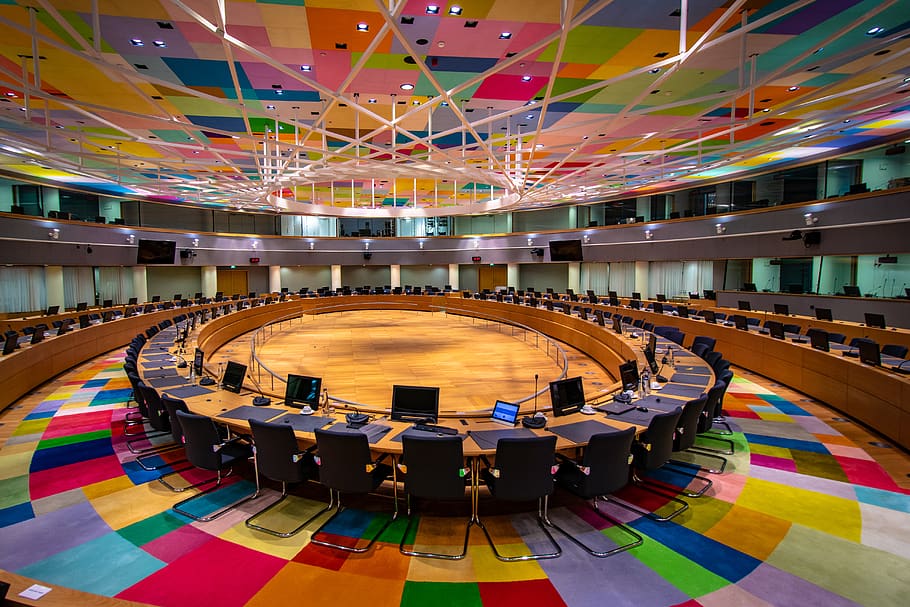„When it comes to public support for modernizing NPPs in the form of contracts for difference, the possible new ruling party in Spain will be a lot more understanding for this proposal put forward especially by France and other countries that support nuclear energy. This is because Partido Popular calls for the modernization and extension of the life of existing nuclear power plants in Spain, which is the opposite of the PSOE policy,” writes Maciej Burny from Enerxpierience for BiznesAlert.pl.
With Spain taking over the six-month presidency of the Council of the European Union from July until the end of the year, it is worth looking at Madrid’s possible priorities for EU climate and energy policy. This is all the more interesting given the fact that in a few days (i.e. July 23) Spain will hold parliamentary elections which, according to latest polls, may result in a change of government.
The Spanish Socialist Workers’ Party (PSOE) will probably have to hand over the helm to the right-wing Partido Popular Party, possibly paired with the far-right VOX party. Thus, it is highly likely that the presidency of the council will be taken over by a new formation whose demands on climate and energy policy are very different from those of the current government in Madrid.
The Spanish presidency has already formally set out its energy priorities. First of all, Madrid will want to reach a political consensus at the Council on the energy market reform. Ministers for energy agree on revising the Market Directive, in particular when it comes to continuing another year where limits on prices for inframarginal electricity producers will be binding.
However, the member states need to revise the regulation on energy market, including especially 1) using contracts for difference for existing NPPs, and 2) prolonging support for coal-fired power plants with the capacity market.
Benefits for Paris and Warsaw
When it comes to public support for modernizing NPPs in the form of contracts for difference, the possible new ruling party in Spain will be a lot more understanding for this proposal put forward especially by France and other countries that support nuclear energy. This is because Partido Popular calls for the modernization and extension of the life of existing nuclear power plants in Spain, which is the opposite of the policy of the PSOE. The current policy of the Spanish government is to start closing the existing blocks from 2027 and completely phase out the atom by 2035. The Spanish nuclear fleet consists of seven operating reactors with a total installed capacity of more than 7 GW, which is approx. 30 percent of the total installed electricity capacity in the country and approx. 20% of energy production.
Regarding the extension of support for coal-fired power plants in the capacity market, we can expect a greater understanding of the Partido Popular for Polish postulates to extend the derogation from the emission standard of 550 g CO2/kWh for these sources until the end of 2028. The potential winner of the upcoming elections defends Spain’s domestic coal-fired power plants and even calls for their continued operation in the long term. Today, coal-fired power plants generate about 3.5 GW in Spain. Thus, one can expect a greater understanding for the „black gold” from the possible successors of the PSOE – a party with high ambitions in the field of climate protection and strongly anti-coal, striving for the rapid development of primarily renewable energy sources.
The Spanish presidency will strive for starting trialogues with the Parliament and the EC on reforms of the energy market, however, opinions are divided on the possibility of concluding these negotiations before the end of the year, taking into account the specific internal circumstances of Madrid.
Wrapping up the Fit for 55 package
Whatever the outcome of the election, the Spanish will certainly also want to negotiate the remaining parts of the Fit for 55 package, including: 1) regulations for the natural gas market and the creation of a market for renewable gases; 2) revision of the directive on industrial emissions from large fuel combustion sources; 3) revision of the buildings directive and 4) the methane regulation.
The Council has adopted a general approach to the proposal for the directive on common rules for the internal markets in renewable and natural gases and in hydrogen back in March 2023 and is ready for trilateral negotiations. The same goes for the industrial emissions directive, the methane regulation and the building directive. The question remains as to which of these acts will be a priority for the Spanish presidency, since it is unlikely that they will be able to conclude negotiations on all topics.
It will be particularly difficult to conclude negotiations on the revision of the buildings directive, where the positions of the Council and Parliament differ significantly on the pace of the energy transition. The topic is also socially difficult, widely commented on by the media, and politically sensitive, so the question is whether the Spaniards will be able to achieve significant progress here.
Reading the energy priorities of the Spanish presidency, there is a lot of talk about promoting renewable hydrogen, and perhaps the gas-hydrogen package will become the most important of the remaining agreements within the Fit for 55 framework.
Strengthening strategic branches
Spain is also likely to start trilateral negotiations with the Parliament and the Commission on the Net-Zero Industry Act and Critical Raw Materials Act. For the former, which sets development targets for the European industry in the area of low-carbon strategic technologies, the Council has not yet reached a political agreement. At the end of the Swedish presidency, the member states agreed on increasing EU’s production capabilities when it comes to strategic critical raw materials and the Council is ready to start trilateral talks.









